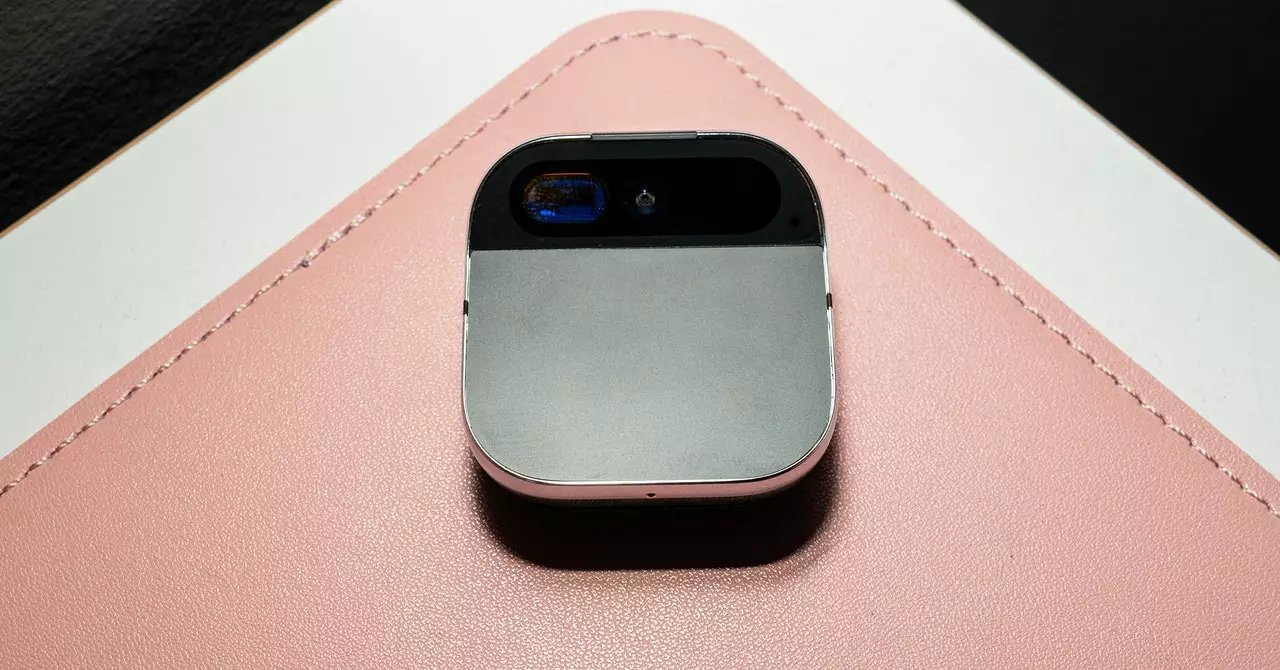The tech landscape is often dotted with stories of lofty aspirations and ambitious projects that promise to revolutionize our lives. One such venture was the Humane Ai Pin, an innovative concept that sought to redefine personal technology. Developed by Humane, a company that positioned itself as Silicon Valley’s “next big thing,” the Ai Pin was introduced with much fanfare in late 2023. Marketed as a wearable device designed to supplant the traditional smartphone, it boasted a ChatGPT-powered assistant, a laser-projected display, and a myriad of features intended to streamline daily life.
However, while the intentions behind the Ai Pin were commendable, the execution of this idea was marred by a series of unfortunate setbacks. Despite the initial excitement and anticipation surrounding its launch, the device ultimately failed to deliver on its promises, leaving many questioning the viability of such advanced wearable technology.
This week, the saga took a significant turn as HP announced its plans to acquire several key assets from Humane for a staggering $116 million. While the acquisition may have offered a lifeline to the struggling startup, it underscored the unfortunate reality of the Ai Pin’s commercial collapse. HP will acquire over 300 patents and the Cosmos operating system, along with some of Humane’s top personnel, including co-founders Imran Chaudhri and Bethany Bongiorno.
However, one vital aspect of the deal seems to be missing—any interest from HP in continuing to develop the actual hardware of the Ai Pin. Sales faltered dramatically, and HP’s decision not to invest further in the device suggests a broader recognition of its failure. Furthermore, the imminent cessation of functionality for existing Ai Pins after February 28, 2024, along with the offer for refunds to recent buyers, highlights a sobering end to what once appeared to be a promising venture.
The User Experience: A Disastrous Reality
When the Ai Pin was released for public consumption in 2024, critical feedback soon poured in. Users encountered a myriad of challenges, ranging from frequent overheating to the AI assistant’s troublesome habit of “hallucinating,” yielding nonsensical or irrelevant responses. Reviews painted a bleak picture, emphasizing not only flawed features but also a lack of practical applications that would justify the device’s existence.
One of the most significant grievances centered around the Ai Pin’s laser projector, which users found cumbersome and ultimately annoying. For many, the allure of a smartphone replacement quickly dissipated in the face of these overwhelming deficiencies. The overarching lesson here is clear: even the most sophisticated technology cannot capture public interest if it fails to address user needs and deliver a reliable experience.
While HP’s acquisition opens new avenues for the development of its product line, the question remains whether the integration of Humane’s Cosmos operating system will yield meaningful advancements. The tech giant asserts that it aims to “unlock new levels of functionality for our customers,” but skeptics are right to wonder whether past failures can be transformed into future successes.
The newly formed HP IQ innovation lab, intended to foster an ecosystem of smart features across HP’s products, will need to tackle the daunting task of rebuilding consumer trust. The challenge lies not only in developing appealing features but also in ensuring that these innovations resonate with a customer base that has become increasingly wary of overly ambitious tech promises.
The downfall of the Humane Ai Pin serves as a valuable illustration of the tech industry’s harsh realities. It reminds us that innovation, while crucial, must be balanced with practicality and user-centric design. In a market that is already saturated with technological solutions, companies must avoid overhyping their products without addressing the fundamental questions of usability and reliability.
As consumers, our expectations for technology have evolved, and with them, our appetite for engaging, intuitive experiences. The tech giants of tomorrow must learn to adapt to these expectations, lest they risk repeating the mistakes of their predecessors.
The failure of the Ai Pin stands as a cautionary tale—a reminder that while innovation is essential, it must be rooted in a genuine understanding of the challenges and needs faced by users. The future of tech will undoubtedly continue to evolve, but this episode will linger in the annals of industry history as a moment of reflection and reassessment.


Leave a Reply